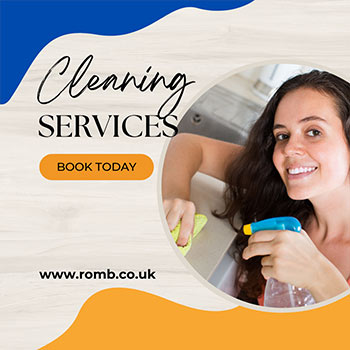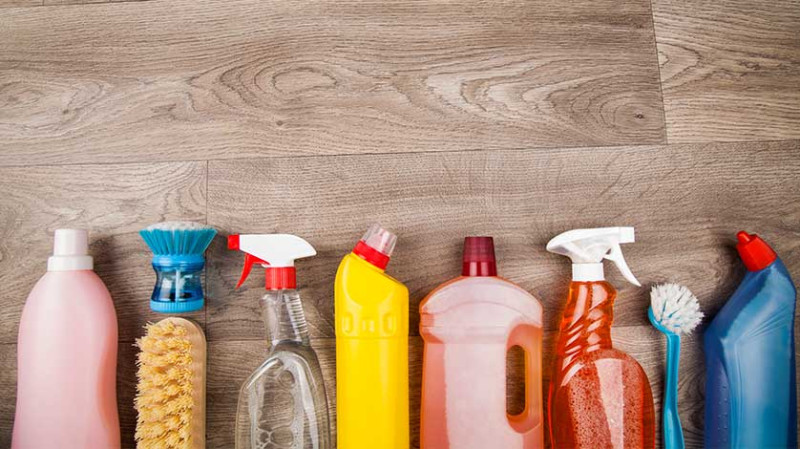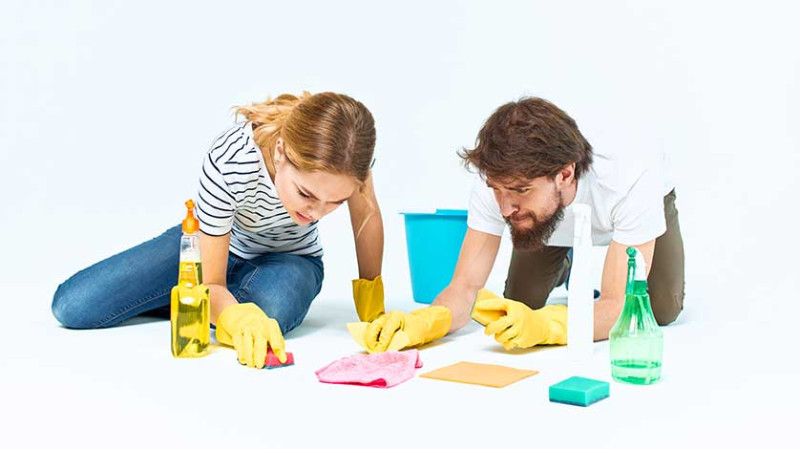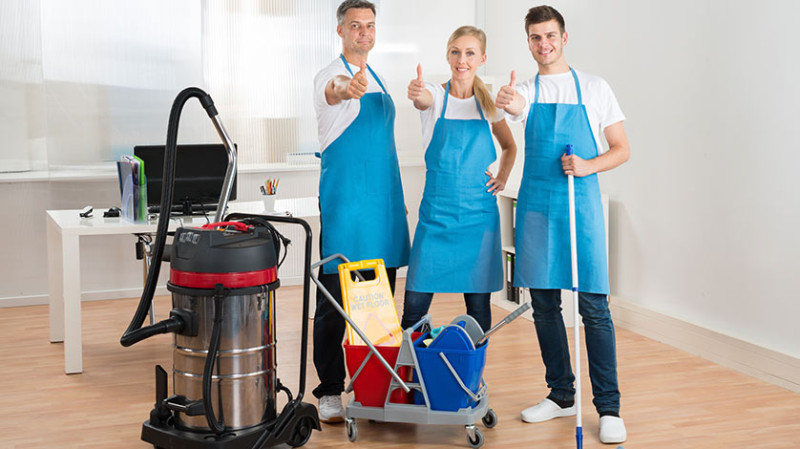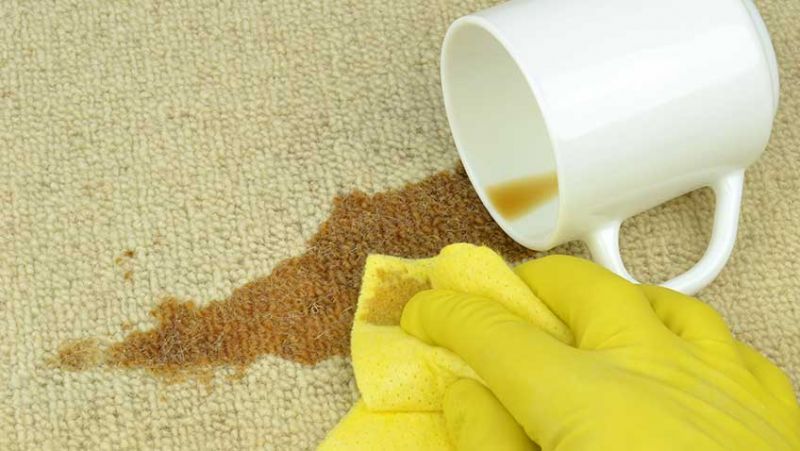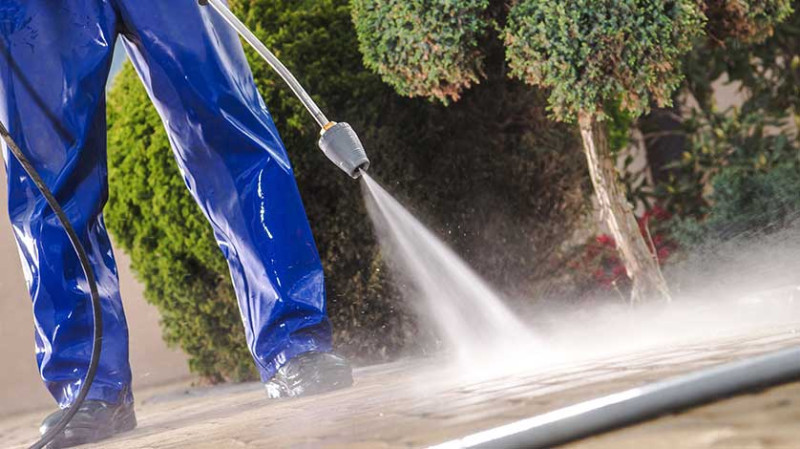
Pressure washing is one of the most effective and satisfying ways to clean outdoor surfaces. Whether you're a DIY enthusiast sprucing up your patio, a young professional maintaining a new property, an architect restoring a project, or a seasoned tradesman keeping client premises presentable and safe—knowing the right chemicals to use is crucial. Using water alone often isn't enough. The proper chemicals make all the difference in achieving a deep clean, preventing damage, and prolonging the life of your surfaces.
In this complete guide, we explore the best pressure washing chemicals available in the UK. We’ll also explain their ideal use cases, application methods, safety considerations, and how to choose the right chemical for your specific cleaning job.
Why Use Chemicals with Pressure Washing?
While pressure washers physically remove dirt using high-pressure water, the addition of suitable chemicals strengthens cleaning power immensely. The right chemical can break down stubborn stains, remove organic growth like moss, mold or algae, kill bacteria, and dissolve oils or grease. They're especially valuable when cleaning porous surfaces where dirt settles deep into material textures.
For homeowners, it means easier patio, driveway, or façade maintenance with longer-lasting results. For professionals, using chemicals helps improve efficiency, deliver better quality workmanship, and reduce labour time—boosting client satisfaction and profitability.
Additionally, using chemicals appropriately can reduce the amount of pressure needed, which is especially important when working on softer or more delicate surfaces like softwood decking or painted renders where high pressure might cause damage.
In short, pairing your pressure washer with the right chemicals gives you a winning combination for any cleaning task.
Types of Pressure Washing Chemicals
There is a variety of pressure washing chemicals available on the UK market, each designed for specific applications. Below, we break down the main types of pressure washing chemicals you’re likely to encounter, along with their primary uses.
| Chemical Type | Primary Use | Suitable Surfaces |
|---|---|---|
| Degreasers | Breaks down oil, fuel, and grease deposits | Driveways, garage floors, industrial machinery |
| Surface Cleaners | General cleaning of dirt, dust, and stains | Patios, brickwork, render, paving slabs |
| Disinfectants / Biocides | Kills algae, moss, and other organic matter | Roofs, walls, decking, shaded areas |
| Mould & Mildew Removers | Removes black spots, mildew, and mould stains | Render, cladding, wall coatings, tiles |
| Rust Removers | Dissolves rust stains from hard surfaces | Concrete, metal, patio furniture |
Understanding the chemical’s purpose ensures you choose the best product suited for the surface you're cleaning. For example, using a degreaser on wood decking might not only be overkill but could also stain or damage it. Likewise, using a basic surface cleaner on a moss-covered roof will likely be ineffective.
Top Recommended Pressure Washing Chemicals in the UK
Here are some of the most trusted and effective pressure washing chemicals commonly used across the UK by homeowners and professionals alike:
- Everyday Patio Cleaner – Jeyes Fluid Outdoor Cleaner
Ideal for use on patios, concrete, paving slabs, and tarmac. This trusted UK favourite removes dirt, algae, moss, and mildew. It’s affordable, widely available, and easy to apply. - Professional Biocide – AlgoClear Pro
A top-tier product used by tradespeople and contractors. Specially designed to clean and protect render, tarmac, roofs, and cladding from algae, moss, and fungi. No rinsing is typically required, and it has a very long-lasting effect. - Heavy Duty Degreaser – Owatrol Net-Trol
A powerful water-based cleaner and brightener ideal for cleaning greasy driveways, natural stone, and removing ingrained grime. It also reopens the pores of wood before re-staining or painting, making it a favourite among decorators and landscapers. - Mould and Mildew Killer – Benz Lightning Cleanze
Known for enormous fast-acting power on render, block paving and facades. Removes black mould, mildew and green algae without damaging rendered surfaces. - Driveway Cleaner – Ultima-Plus XP Path & Patio Cleaner
A highly effective general-purpose cleaner for driveways, patios, decking, and block paving. It’s bleach-based, so it’s best used on hard surfaces where vegetation control is also needed.
When buying chemicals, always read the label to ensure compatibility with your pressure washer and surfaces. Some chemicals can corrode metal parts or damage painted surfaces if not used correctly.
How to Apply Chemicals When Pressure Washing
Proper application of chemicals is just as important as choosing the right one. There are generally two ways to apply chemicals:
- Pre-treatment (Before Pressure Washing): Apply the chemical to the surface and allow time to dwell—usually anywhere from 5–30 minutes depending on product instructions—before rinsing away with the pressure washer.
- Through the Detergent Tank or Injector: Many pressure washers allow you to use detergents via onboard tanks or chemical injectors. This method automatically dilutes and applies the chemical via the spray lance.
For stubborn stains or moss, pre-treatment is often more effective as it allows the solution to soak and loosen debris. Always start from the bottom and work upwards to prevent streaking, then rinse from top down for a clean finish.
Don’t forget to test the chemical on a discreet area before wide application to ensure it doesn’t damage the surface. Keep your pressure washer on a low-pressure setting when applying chemicals, and wear safety gear such as gloves and goggles when handling concentrated solutions.
Safety & Environmental Considerations
Using powerful chemicals outdoors demands attention to safety. Many pressure washing chemicals, particularly bleach-based ones, can be harmful to pets, plants, and aquatic life. Here's how to limit environmental impact and stay safe:
- Cover plants and lawn areas before spraying chemicals.
- Wear protective gloves, clothing, and eyewear to avoid splashes.
- Work in dry conditions to prevent runoff into drains or wildlife areas.
- Always follow dilution and disposal instructions on packaging.
- Choose biodegradable or environmentally safe alternatives where possible.
Contractors are urged to refer to COSHH (Control of Substances Hazardous to Health) guidelines when using professional-grade chemicals, particularly when working in commercial or public environments.
What to Avoid When Using Pressure Washing Chemicals
Misuse of chemicals can not only cause surface damage but also endanger your safety or violate local regulations. Here are some common mistakes to avoid:
- Using household bleach directly: Bleach can damage asphalt, paints, and delicate coatings, and it poses a hazard to nearby plants and pets when undiluted.
- Mixing incompatible products: Combining certain chemicals (e.g., bleach and acids) can cause dangerous fumes or reactions.
- Using the wrong pressure: Don’t assume you need maximum pressure for cleaning—chemicals are designed to reduce the force required.
- Ignoring safety labels: Always read and follow label directions, including required dilution ratios.
- Letting chemicals dry on the surface: Allowing chemicals to dry before rinsing can cause stains or surface etching.
If you’re uncertain about using a chemical on a particular surface, consult the product manufacturer or a professional cleaner.
Conclusion
Whether you're restoring a tired patio, treating moss on a roof, or preparing surfaces for paint—choosing the right chemical for your pressure washer will dramatically improve your results. From everyday home use to professional-level cleaning, the UK market offers wide-ranging products to suit every surface and situation.
By understanding what each chemical does and how to apply it properly, you’ll achieve cleaner, longer-lasting results with less effort and minimal environmental impact. And remember: safety first, always test discreetly, and reach for professional advice when in doubt.
Have a pressure washing project coming up? Equip yourself with the knowledge, pick the right chemical, and bring surfaces back to life like a true pro.
